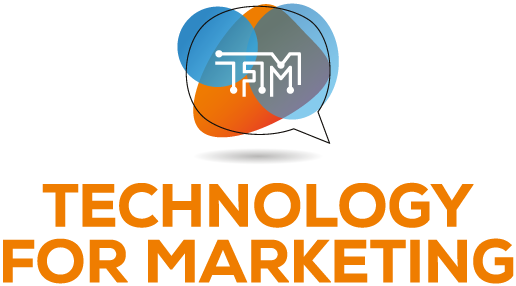Carolyn Tang Kmet: eCommerce Evolution, Data-Driven Teaching, and the Future of Personalisation in Marketing
)
Meet Carolyn Tang Kmet, a seasoned expert in eCommerce and digital marketing turned educator at Northwestern University, as she shares insights on personalisation, data-driven marketing, and building authentic brand-consumer relationships in an evolving digital landscape.
Carolyn's career journey and advice
Tell us about your career so far and the essential turning points that got you where you are today.
I feel fortunate to have lived through the evolution of eCommerce – from brands building simple brochureware sites to transforming how people shop. As technology advanced, it created new opportunities, and like many others in my generation, I pursued them! What benefited me the most, I think, was the desire to understand every aspect of the digital marketing ecosystem. I intentionally pursued roles within every stakeholder group: brands, agencies, advertisers, and tracking solutions. This gave me insights into the specific needs of each stakeholder, which shaped my strategic decisions in areas like campaign management, product development, etc. I absolutely loved having a holistic view of the field as it moved from baud rate to bits per second, and so quickly!
My deus ex machina, though, was an old business school mentor who asked me to teach an undergraduate summer course on digital marketing. Other than teaching children how to play tennis back in my school days, I had never taught before, but I agreed. To everyone’s surprise - including my own - I loved it. Sharing what I learned in the field, connecting it to theory, and inspiring our next generation of marketers provided a type of fulfilment that I hadn’t found in corporate life. Over the next 16 years, I climbed both the corporate and academic ladders, and in September 2023, I joined Northwestern University’s Medill School of Integrated Marketing Communications as a full-time faculty member. I now teach marketing analytics and data storytelling, and I couldn’t be happier!
Looking back at your career, what advice would you give your 20-year-old self?
Just because someone else says it can’t be done, doesn’t mean you can’t do it. Don’t let society’s assumptions shape your own – trust your skills and experience. Recognise what you have accomplished, and acknowledge what you have yet to achieve. And always, always make an effort to know the person behind the title, regardless of their position. Building authentic relationships not only strengthens working connections but also brings greater empathy and understanding to their decisions.
Your conference at Technology for Marketing
Tell us more about your conference “Emerging Technology and the Future of Personalisation”
How do you envision the growing use of advanced data sources coming together to enhance personalisation and consumer engagement across both digital and physical environments?
Currently, we treat digital and physical environments as separate spaces, but when you think about how we live, the barriers between digital and physical environments are diminishing each day. We used to communicate via letter; now we communicate via email and text. We used to meet in person; now we meet virtually. I think the next evolution of personalisation is understanding consumers’ emotional states as they flow across both digital and physical environments, and understanding that emotional states in one environment affect motivation and intent in the other.
When you think about it, a lot of the data we have on our consumers is surface-level: age, household data, disposable income, etc. We can see behavioural data – what they search for, what they purchase, what they like, whether they are discount shoppers or brand loyalists, etc. I think the next level of data is understanding a consumer’s feelings in real time. Consider this: when I ask, “How are you?” and you say, “I’m fine,” I interpret your response based on more than just your words. I also consider your tone, body language, facial expression, etc. Personalisation in this way relies on richer data, extending beyond the transactional to create a more empathetic brand experience. That said, while this data may be very valuable, it’s also ephemeral.
You mentioned that personalisation should be seen as a collaborative brand-consumer relationship rather than a linear journey. Can you elaborate on how this shift in mindset changes the way marketers approach personalisation?
This shift in thinking draws on research from my colleagues at Northwestern’s Spiegel Research Center, which shows that brand-consumer engagement isn’t linear – it’s a dynamic exchange. Brands aren’t just prompting conversations; they’re part of a dialogue that consumers might initiate. Notably, non-purchase brand interactions, such as engagement behaviours, have the strongest impact on future engagement and customer lifetime value. This suggests that, rather than relying solely on transactional data, we should leverage non-purchase data to inform personalisation strategies.
Can you share one of your favourite examples of a campaign that successfully used advanced data, like health or mood-based data, to enhance personalisation?
Spotify is an excellent example. They’re pushing beyond standard expectations of personalisation by considering the context around user requests. By analysing voice intonation and background noise, Spotify can understand users’ emotional states and surroundings – whether they’re with friends, alone, commuting, etc. This enables Spotify to tailor content in ways that feel deeply relevant and personalised.
With so many emerging technologies like smartwatches, in-store cameras, and WiFi tracking customer movements, how do you see marketers balancing innovation with customer privacy concerns?
Innovation has to be driven by customer need, not by novelty. Brands must be transparent about data collection and should inform customers about how it is being used.
What are some of the best practices for building trust while leveraging personalisation, especially when using sensitive data like health or emotional data?
Make sure you’re consulting with your legal team throughout the development process to consider all possible consumer privacy issues. Internal legal understands business needs, and their goal is to balance corporate strategy and innovation with legal concerns. That said, standard best practices around privacy certainly apply. Be transparent and upfront about what data is being collected, why it’s being collected, and how it’s being used. Get explicit consent, and let consumers have control over what data they share and how it’s used. In my opinion, consumers should have the ability to opt out of specific types of personalisation or data collection entirely. It’s our job to understand consumer needs so deeply that they want to share their data with us. There should be clear value in sharing their data with us. Of course, there must also be robust security and responsible use measures in place, such as encryption and access controls. If the consumer doesn’t trust the brand to use their sensitive data in the way it was intended, then it’s a non-starter.
Quick-fire questions
What is your favourite social media platform, and why?
Facebook helps me stay connected to a lot of personal friends, even though we’re spread out across multiple geographies. LinkedIn lets me follow the careers of many of my former students. What I love most is connecting them with each other and seeing generational mentorship in action.
How many unopened emails do you currently have in your inbox?
Which inbox? I’m not answering – that’s a setup!
What is one of your proudest moments in your career?
Making the decision to teach full-time, and then realising that I had a whole new career ladder open up in front of me.
What is something you’re still looking forward to achieving in your career?
Earning my PhD in research methodologies. 😊
Latest News
-
Future-proofing marketing with Julia Arenson, Head of Creative Operations at Specsavers
02 Aug 2023 Laura DazonMeet Julia, a creative powerhouse who embarked on a transformative journey in the advertising industry. Learn more about how she's working to build a future-proofed in-house agency at Specsavers. -
Crafting Empathetic Marketing Campaigns with James Sharman from Haleon
26 Jun 2023 Laura DazonUnderstanding your audience is key to developing impactful marketing. Here's how James Sharman leverages consumer insights and personalisation to craft empathetic marketing campaigns. -
Launching the Marketing Influencers Top 100 Index
22 Jun 2023 Technology for MarketingTechnology for Marketing is excited to launch the Top 100 Marketing Influencers Index for 2023 to recognise those in the industry that use social media to influence, educate and innovate our sector. -
Creating a Brand from Scratch with Laura Riches, co-founder of Award-Winning Startup Laylo
31 May 2023 Laura DazonFrom zero to a million, the story of how Laura Riches co-created a brand from nothing in three months, and set out to reinvent how to market wine creatively. -
Spot the Storytelling: An Analysis of Recent Marketing Campaigns
30 May 2023 Ann the StorycoachLooking at a few marketing campaigns, Ann the Storycoach teaches you to spot the storytelling and bring your customers into a different world with creative communication. -
Purpose-Driven Marketing with Scott Somerville, Chief Marketing Officer at E.ON
26 Apr 2023 Laura DazonA talk about what it mean to have a genuine message in an industry faced with scrutiny, and how to craft impactful campaigns based on honesty and transparency, while not allowing perception to stand i ...

.png/fit-in/500x500/filters:no_upscale())
)
)
.png/fit-in/500x500/filters:no_upscale())
)
)
-(2000-×-600px)-(1920-×-1080px).png/fit-in/500x500/filters:no_upscale())
)
)
)
)
)

